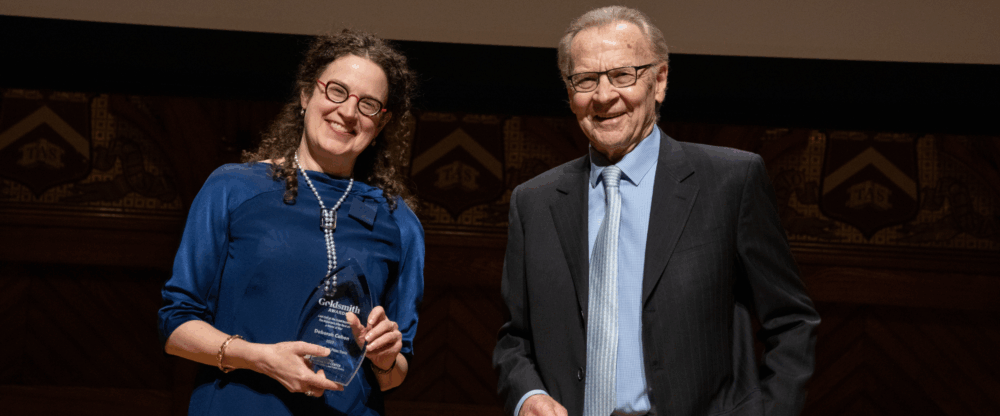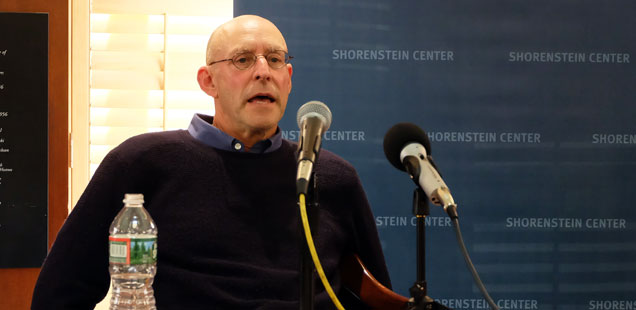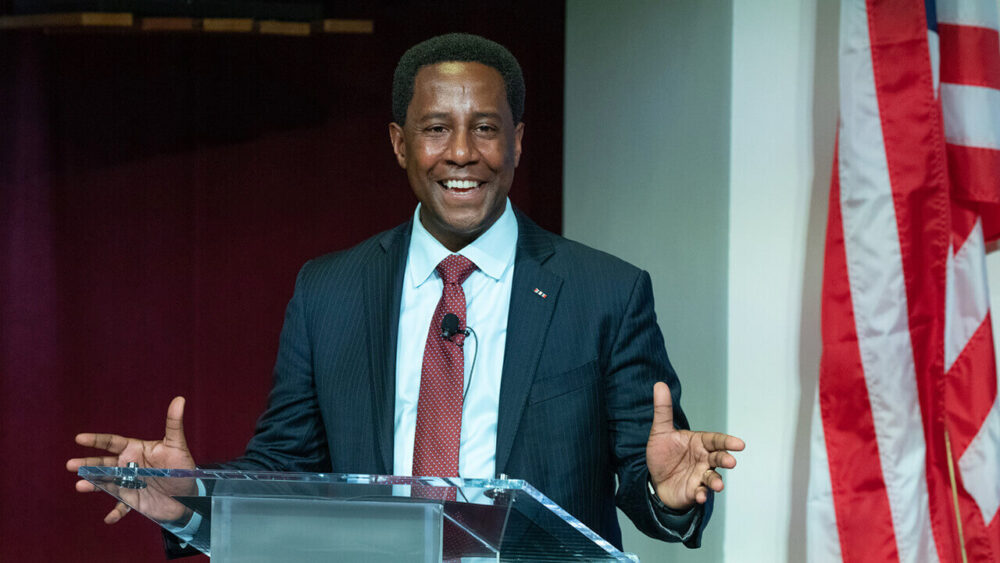
Nominations open for the 2026 Goldsmith Awards
Newsletter

Our weekly roundup of news found at the intersection of media, politics, policy and technology, from the Shorenstein Center and from around the web. Sign up to receive Media and Politics Must Reads in your inbox each week. Also connect with us on Twitter and Facebook for more updates.
Michael Pollan on Improving Food Policy and Its Coverage in the Media. Author Michael Pollan discussed the Farm Bill’s far-reaching impact on the U.S. food system and the environment, how journalists can better cover food policy, and more.
Closing tax loopholes: Explainer and reporting resources, from Journalist’s Resource.
Inside Hillary Clinton’s Secret Takeover of the DNC. Joan Shorenstein Fellow Donna Brazile exposes mismanagement and unethical conduct at the DNC in an excerpt from her new book. “As Hillary’s campaign gained momentum, she resolved the party’s debt and put it on a starvation diet. It had become dependent on her campaign for survival, for which she expected to wield control of its operations,” she writes.
It’s time to end the secrecy and opacity of social media. Entrepreneurship Fellow Wael Ghonim and HKS student Jake Rashbass write that “Because we don’t know how users are collectively experiencing these platforms and what information the sites are circulating, we aren’t able to hold accountable those who spread fake news and misinformation until it’s too late.”
Information Disorder: Toward an interdisciplinary framework for research and policymaking. A new report published by First Draft, lead by Claire Wardle, and commissioned by the Council of Europe, examines how dis-information campaigns have become widespread and, heavily relying on social media, contribute to a global media environment of information disorder.
Seven Bizarre Notions Trump and His Team Have About America. Andrew Rosenthal, Visiting Murrow Lecturer of the Practice of Press and Public Policy, writes that President Trump and his cabinet have notions about America that “are deeply puzzling at best and, at worst, truly scary ideas infused with racism and intolerance of dissent.”
Facts Again Go Missing as Trump Declares Opioid Addiction a National Health Emergency. Derrick Z. Jackson, fall 2016 fellow, writes that “The opioid crisis is indeed a public health menace. But Trump’s narrative, one that claims that drug-related deaths are a greater scourge than gun homicides and motor vehicle deaths put together is at variance with the facts.”
The Silence of the Democrats. Michael Tomasky, spring 2003 fellow, writes that “The future of the Western democratic project is the fundamental issue of our era…Democrats can’t duck this question and expect the broader electorate to see them as prepared to lead.”
How Social Media Abet the Political Right (It’s Not How You Might Think). Neal Gabler, fall 2011 fellow, argues that President Trump is “the product of the social and psychological dynamics that fuel social media.”
Fake news and telling the difference between fact and crap. Renée Loth, fall 2011 fellow, urges readers to be part of the solution in the fight against misinformation. “We all need to gently ease our wild-eyed Facebook friend or app-addled nephew back to the reality-based world. Ask: Who published this? What do they have to gain from it? Can these claims be checked independently? Have you tried?”
In debate over national anthem, black wealth becomes a target. Leah Wright Rigueur, Assistant Professor of Public Policy, and Khalil G. Muhammad, Professor of History, Race, and Public Policy (both Shorenstein Center faculty affiliates), are quoted in The Washington Post regarding recent NFL controversies. “People don’t necessarily pay attention to the fact that they say in one breath, ‘I don’t want to hear what sports people have to say about politics,’ but then they will listen to a reality TV star or a rock-and-roll star like Ted Nugent rail against whatever is the political hot topic of the moment,” said Rigueur.
In Defense Of Neutrality: Why News Organizations Are Right To Crack Down On Social Media. Dan Kennedy, spring 2016 fellow, writes that “Providing tough, fair-minded coverage is a discipline that is undermined once you disclose your own biases.”


Center News

Center News